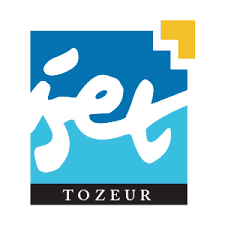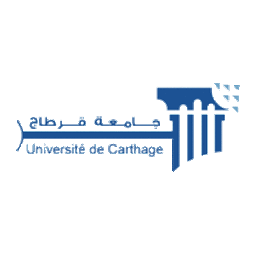Higher Education Jobs in Tunis
Tunis offers vibrant academic opportunities, with leading institutions driving innovation in fields like humanities, sciences, and technology. As the capital of Tunisia, Tunis is a hub for higher education, attracting academics and researchers from across the Mediterranean. Discover professor ratings and connect with the academic community through Rate My Professor on AcademicJobs.com.
The city hosts a blend of traditional and modern educational environments, making it an appealing destination for academic careers in Tunis. Explore careers and resources tailored to Tunis University Jobs at AcademicJobs.com.
Tunis's strategic location and rich cultural heritage provide a unique backdrop for higher education jobs in Tunis. Institutions here are known for their focus on research in areas such as North African studies, Islamic history, and sustainable development. Whether you're seeking lecturer roles in Tunis or research jobs in Tunis, this city offers a dynamic academic landscape.
For those considering a move, Tunis provides a supportive environment for faculty and students alike. With a growing emphasis on international collaboration, academic opportunities in Tunis are expanding. Dive into the possibilities with tools and listings on Faculty Positions and beyond.
Top Universities in Tunis:
Faculty Job Opportunities in Tunis
Pursue rewarding careers in Tunis with roles such as Assistant Professor, Lecturer, and Research Fellow. The demand for professor positions in Tunis is growing, particularly in disciplines like engineering, medicine, and social sciences. Salaries for faculty jobs in Tunis vary by institution and experience, with entry-level positions starting around 20,000–30,000 TND annually, while senior roles can reach up to 50,000–70,000 TND per year based on recent data.
Tunis's academic sector is bolstered by government investment in education and international partnerships, creating a fertile ground for academic careers in Tunis. Tenure-track positions and research jobs in Tunis are often tied to projects addressing regional challenges, such as sustainable agriculture and renewable energy. AcademicJobs.com offers a comprehensive list of opportunities tailored to higher education jobs in Tunis, ensuring you find the right fit.
For those exploring lecturer roles in Tunis, many institutions prioritize candidates with international experience or expertise in niche fields. Networking through platforms like Research Jobs can open doors to unique opportunities. Whether you're an early-career academic or a seasoned professional, Tunis offers a vibrant setting to advance your career.
Why Pursue a Career in Tunis Academia
Academic careers in Tunis offer a unique blend of cultural richness and professional growth. The city's universities are deeply rooted in Mediterranean and North African heritage, providing unparalleled research opportunities in history, archaeology, and cultural studies. Additionally, Tunis's proximity to Europe fosters international collaboration, making it a strategic location for academics seeking global impact. Explore these opportunities at AcademicJobs.com.
Beyond research, Tunis offers a supportive community for faculty, with initiatives to improve work-life balance and professional development. The city's academic institutions often collaborate with local industries, particularly in technology and tourism, creating interdisciplinary career paths for Tunis University Jobs. This dynamic environment is ideal for those passionate about making a local and global impact through education.
Salary Guide for Faculty in Tunis
Faculty salaries in Tunis vary by role, institution, and experience level. Based on recent data, Assistant Professors typically earn between 20,000 and 30,000 TND annually, while Associate Professors can expect 30,000 to 45,000 TND per year. Full Professors at top institutions may earn upwards of 50,000 to 70,000 TND annually. These figures are influenced by factors such as the cost of living in Tunis, which is relatively moderate compared to European capitals, and institutional funding.
Public universities often provide additional benefits like housing allowances and research grants, which can enhance overall compensation for faculty jobs in Tunis. Private institutions may offer higher base salaries to attract international talent, particularly for specialized fields. For a detailed breakdown of salaries in Tunis academia, resources on Professor Salaries at AcademicJobs.com are invaluable.
Experience and academic rank significantly impact earnings. Early-career academics may start at the lower end of the salary spectrum, but opportunities for advancement are plentiful with dedication and research output. Additionally, cost of living adjustments in Tunis make these salaries competitive within the region, supporting a comfortable lifestyle for academics.
Weather and Climate in Tunis
Tunis enjoys a Mediterranean climate with hot, dry summers and mild, wet winters, making it an attractive location for academics year-round. Average summer temperatures range from 25°C to 33°C (77°F to 91°F), ideal for outdoor activities during breaks. Winters are cooler, averaging 8°C to 15°C (46°F to 59°F), with occasional rainfall that rarely disrupts campus life. This climate supports a vibrant academic calendar with minimal weather-related interruptions.
For newcomers, the best times to visit campuses or relocate are during spring (March to May) and autumn (September to November), when temperatures are moderate, and the city is at its most scenic. The pleasant weather in Tunis enhances the academic experience, allowing for outdoor lectures, cultural festivals, and networking events. However, summer heat can be intense, so staying hydrated and planning indoor activities during peak heat is advisable.
The climate also influences lifestyle choices for faculty and students. Many choose to live near the coast to enjoy sea breezes, while others prefer urban areas with easy access to university facilities. Overall, the weather in Tunis supports a balanced academic life, blending professional commitments with leisure. Explore more about living in Tunis through resources on Academic Career Advice.
Work Environments in Tunis Universities
Work environments in Tunis universities are characterized by a blend of traditional values and modern academic practices. Campuses often foster a collaborative atmosphere, with faculty encouraged to engage in interdisciplinary research. Many institutions prioritize diversity and inclusion, welcoming international academics and promoting cultural exchange, which enriches the work culture for academic careers in Tunis.
Facilities in Tunis universities vary, with public institutions offering robust libraries and research centers, while private universities may provide cutting-edge technology and smaller class sizes. Work-life balance is a growing focus, with some universities offering hybrid teaching options and flexible schedules. Employee satisfaction is often tied to community engagement and the opportunity to contribute to regional development through education.
Tunis's academic institutions are also known for their proximity to cultural landmarks and urban amenities, enhancing the overall work experience. Faculty often cite the supportive community and access to Mediterranean landscapes as perks of working here. For more insights into work environments, check out Rate My Professor on AcademicJobs.com to see feedback from students and peers.
Lifestyle and Cost of Living in Tunis
The lifestyle in Tunis offers a rich blend of history, culture, and modernity, making it an appealing destination for academics. The cost of living is relatively affordable compared to European cities. Average monthly rent for a one-bedroom apartment in the city center ranges from 600 to 1,000 TND, while outside the center, it drops to 400–700 TND. Groceries and dining are also budget-friendly, with a monthly food budget for one person averaging 300–500 TND.
Transportation in Tunis is accessible, with options like the metro, buses, and taxis at low costs (a monthly public transport pass is around 30–50 TND). Cultural attractions, such as the Medina of Tunis (a UNESCO World Heritage site), museums, and coastal areas, provide endless recreational opportunities. Dining options range from traditional Tunisian cuisine to international fare, catering to diverse tastes.
For academics, Tunis offers a vibrant arts scene and proximity to natural landscapes like the Gulf of Tunis, ideal for weekend getaways. The city's moderate cost of living allows faculty to enjoy a comfortable lifestyle while saving or investing in professional development. Learn more about balancing life and work in Tunis through Academic Career Advice on AcademicJobs.com.
Rate My Professor: Top Educators in Tunis
Find and celebrate top educators in Tunis with Rate My Professor on AcademicJobs.com. This platform allows students and peers to rate professors based on teaching style, accessibility, and impact, helping you choose the best courses or mentors for your academic journey in Tunis.
Career Progression in Tunis Academia
Career paths in Tunis academia typically follow a progression from Assistant Professor to Associate Professor and finally to Full Professor, with opportunities for administrative roles like Department Chair or Dean. Tenure-track positions are competitive but rewarding, often tied to research output and teaching excellence. Find tailored opportunities at Tenure-Track Jobs on AcademicJobs.com.
Research funding in Tunis is often supported by government initiatives and international grants, particularly in fields like sustainable development and cultural preservation. Local industry partnerships, especially in tourism and technology, also provide unique avenues for career growth in higher education jobs in Tunis.
Research and Trends in Tunis Higher Education
Current trends in Tunis higher education include a strong focus on sustainability, digital transformation, and cultural studies. Research areas such as renewable energy, water management, and North African history are gaining traction, supported by national and international funding. Opportunities for collaboration with European and Middle Eastern institutions are also on the rise, enhancing the scope of research jobs in Tunis.
Interdisciplinary programs are becoming more common, blending technology with traditional fields to address regional challenges. Explore these cutting-edge opportunities through Research Jobs on AcademicJobs.com.
Resources for Tunis Academics
- Professional associations like the Tunisian Association of University Teachers 🎓
- Academic journals focusing on North African studies and sustainable development 📚
- Annual conferences in Tunis on education and technology, with registration fees averaging 100–200 TND 💻
- Networking events hosted by universities, often free for faculty 📍
- Career tools and job listings on AcademicJobs.com 💼
Student Perspectives in Tunis Higher Education
Students in Tunis can explore a variety of programs, from engineering to humanities, with strong career outcomes in regional industries. Choosing the right professor is crucial, and platforms like Rate My Professor on AcademicJobs.com provide valuable insights. The city’s affordable living costs and pleasant weather also enhance the student experience.
Cultural immersion and proximity to historical sites offer unique learning opportunities outside the classroom. Students are encouraged to engage with local communities and participate in university-led initiatives for a well-rounded education in Tunis.







